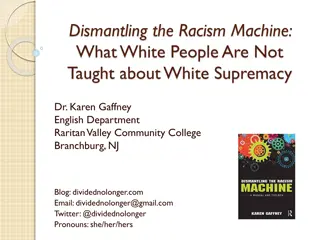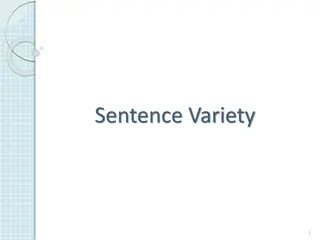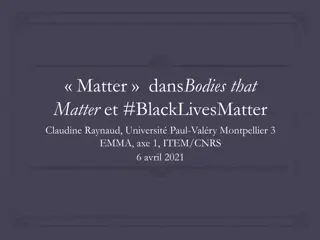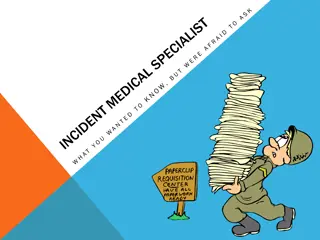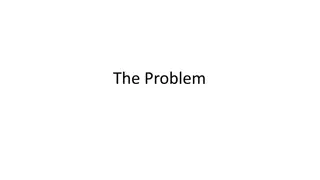
Codependency Patterns - Recognizing and Overcoming Negative Behaviors
Learn about common denial, low self-esteem, and compliance patterns among codependents. Discover how these behaviors can impact relationships and self-worth, and find ways to address and overcome them for healthier dynamics.
Download Presentation

Please find below an Image/Link to download the presentation.
The content on the website is provided AS IS for your information and personal use only. It may not be sold, licensed, or shared on other websites without obtaining consent from the author. If you encounter any issues during the download, it is possible that the publisher has removed the file from their server.
You are allowed to download the files provided on this website for personal or commercial use, subject to the condition that they are used lawfully. All files are the property of their respective owners.
The content on the website is provided AS IS for your information and personal use only. It may not be sold, licensed, or shared on other websites without obtaining consent from the author.
E N D
Presentation Transcript
TAKE MY ADVICE IM NOT USING IT KAREN D. AUGUST 2022 SPECIALK2102@GMAIL.COM,
DENIAL PATTERNS CODEPENDENTS OFTEN. . . : have difficulty identifying what they are feeling. minimize, alter, or deny how they truly feel. perceive themselves as completely unselfish and dedicated to the well-being of others. lack empathy for the feelings and needs of others.
DENIAL PATTERNS CODEPENDENTS OFTEN. . . : label others with their negative traits. think they can take care of themselves without any help from others. mask pain in various ways such as anger, humor, or isolation. express negativity or aggression in indirect and passive ways. do not recognize the unavailability of those people to whom they are attracted.
LOW SELF-ESTEEM PATTERNS CODEPENDENTS OFTEN. . . : have difficulty making decisions. judge what they think, say, or do harshly, as never good enough. are embarrassed to receive recognition, praise, or gifts. value others approval of their thinking, feelings, and behavior over their own.
LOW SELF-ESTEEM PATTERNS CODEPENDENTS OFTEN. . . : do not perceive themselves as lovable or worthwhile persons. seek recognition and praise to overcome feeling less than. have difficulty admitting a mistake. need to appear to be right in the eyes of others and may even lie to look good.
LOW SELF-ESTEEM PATTERNS CODEPENDENTS OFTEN. . . : are unable to identify or ask for what they need and want. perceive themselves as superior to others. look to others to provide their sense of safety. have difficulty getting started, meeting deadlines, and completing projects.
COMPLIANCE PATTERNS CODEPENDENTS OFTEN. . . : are extremely loyal, remaining in harmful situations too long. compromise their own values and integrity to avoid rejection or anger. put aside their own interests in order to do what others want. are hypervigilant regarding the feelings of others and take on those feelings.
COMPLIANCE PATTERNS CODEPENDENTS OFTEN. . . : are afraid to express their beliefs, opinions, and feelings when they differ from those of others. accept sexual attention when they want love. make decisions without regard to the consequences. give up their truth to gain the approval of others or to avoid change.
CONTROL PATTERNS CODEPENDENTS OFTEN. . . : believe people are incapable of taking care of themselves. attempt to convince others what to think, do, or feel. freely offer advice and direction without being asked. become resentful when others decline their help or reject their advice. lavish gifts and favors on those they want to influence.
CONTROL PATTERNS CODEPENDENTS OFTEN. . . : use sexual attention to gain approval and acceptance. have to feel needed in order to have a relationship with others. demand that their needs be met by others. use charm and charisma to convince others of their capacity to be caring and compassionate.
CONTROL PATTERNS CODEPENDENTS OFTEN. . . : use blame and shame to exploit others emotionally. refuse to cooperate, compromise, or negotiate. adopt an attitude of indifference, helplessness, authority, or rage to manipulate outcomes. use recovery jargon in an attempt to control the behavior of others. pretend to agree with others to get what they want.
AVOIDANCE PATTERNS CODEPENDENTS OFTEN. . . : act in ways that invite others to reject, shame, or express anger toward them. judge harshly what others think, say, or do. avoid emotional, physical, or sexual intimacy as a way to maintain distance. allow addictions to people, places, and things to distract them from achieving intimacy in relationships.
AVOIDANCE PATTERNS CODEPENDENTS OFTEN. . . : use indirect or evasive communication to avoid conflict or confrontation. diminish their capacity to have healthy relationships by declining to use the tools of recovery. suppress their feelings or needs to avoid feeling vulnerable. pull people toward them, but when others get close, push them away.
AVOIDANCE PATTERNS CODEPENDENTS OFTEN. . . : refuse to give up their self-will to avoid surrendering to a power greater than themselves. believe displays of emotion are a sign of weakness. withhold expressions of appreciation.








